Rank Math is a popular search engine optimization plugin with over a million active users. It not only has good ratings in the WordPress repository but is also feature-rich. SEOPress, on the other hand, is a powerful WP SEO extension with various useful options. It is a fast-growing extension with around 200k users. Is it better than RM or vice versa? Which plugin is more powerful among the two? I have used SEOPress for 1.5 years, and I’m currently using Rank Math on a few websites. Below, I have compared these two search engine optimization plugins. Find out which WP SEO extension is better, SP or RM.
Wizard
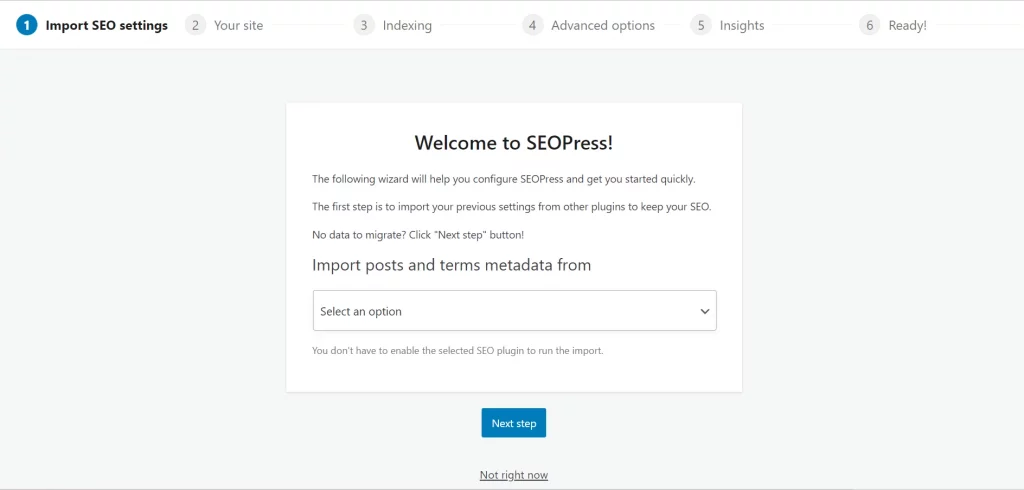
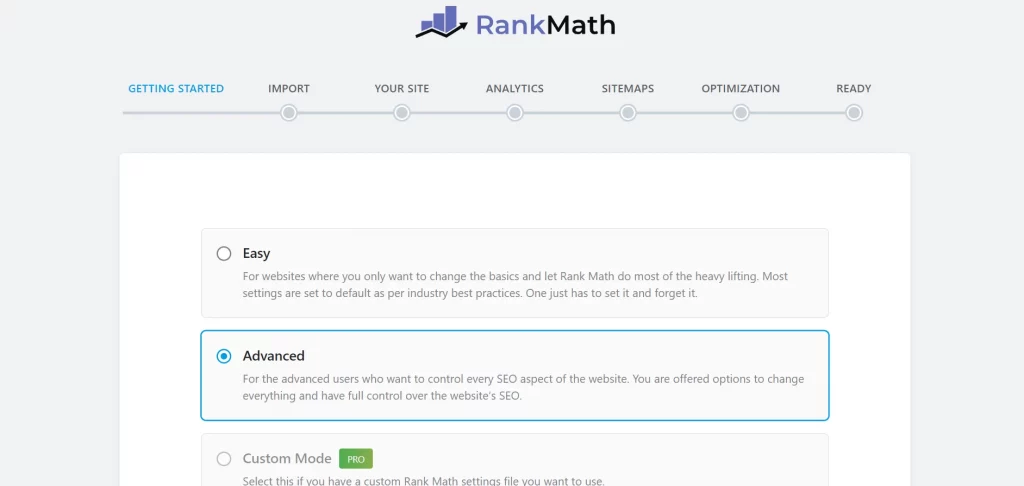
Wizard is a feature that helps users configure the settings quickly and easily. Both Rank Math and SEOPress come with a wizard utility through which users can set up the plugin on their WordPress sites quickly.
Meta tag management
The title/meta description meta tags are very important as search engines display the data inside them in search results. They also tell search engines what to do with the page. SEOPress and Rank Math have loads of options in their Meta Tags section. You can configure them to exclude archive, author, date, and other irrelevant pages of a WordPress site from appearing in the search results. The plugins can automatically generate a meta description in case you don’t specify one and allow users to set a custom title tag for each post/page. These two tools can also insert a valid canonical tag in the header of the site.
Keyword density
Both search engine optimization plugins let users check the usage of keywords in posts and pages. While Yoast free edition, the most popular search engine optimization plugin, supports only one focus keyword in its focus keyword box, you can enter multiple keywords in the focus keyword text field of the two extensions.
Sitemap
RM and SP can add a sitemap to the website. For those who are not aware, sitemaps is nothing but an XML file containing all important links to the site. It helps search engines in finding pages on a website. RM users can configure the sitemap to exclude posts with certain IDs and limit the number of URLs per page. SEOPress doesn’t provide these two functions and it supports HTML sitemaps.
Social data (OpenGraph tags)
SEOPress and its competitor i.e. Rank Math can generate and add Open Graph meta tags to the pages/posts. For those who are not aware, the Open Graph meta tags make pages and posts look good on social media sites that support them.
Image SEO
Images on pages and posts of a WordPress website can bring a good number of visitors from Google or Bing image search to the website. To make your images appear for search queries in image search, you must add alt tags to the images. The two extensions can automatically set alt tags for images.
Compatibility
The 2 SEO extensions work like a charm with various page builders. They also let you import SEO data from other popular SEO plugins.
White labeling
SEOPress lets its users rebrand the extension. It can hide the developer details completely and allows users to disable its official icon. RM doesn’t support white labeling.
SEO data in the dashboard
RM can track the keyword rankings and display the same in the WordPress dashboard if you connect your Google Search Console account with the plugin. SEOPress developers have built and introduced a dedicated rank tracker called Insights. Insights enable users to monitor their site’s keywords position and also allows users to check the backlinks.
Score
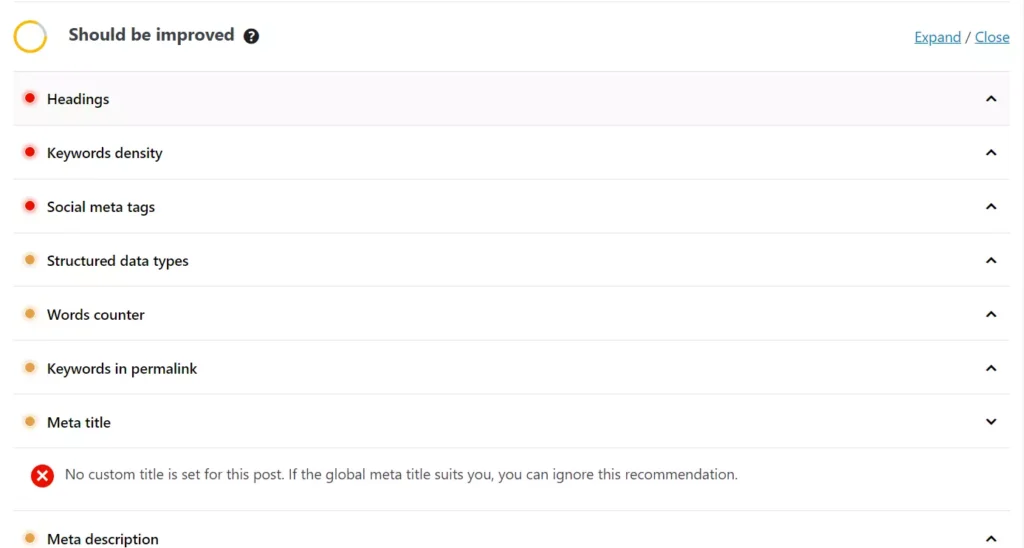
SEOPress analyzes your content in real time and calculates its core. If the color of the score indicator is green or yellow, the content is good. If the indicator’s color is red or orange, you must improve it by focusing on the metrics highlighted by the red/orange color. The metrics are displayed below the indicator. The content analysis score of SEOPress is based on 16 factors. In Rank Math, the SEO score of a post or a page can be 0 to 100. The score is based on 21 factors.
Date in sitemaps
If, for some reason, you don’t want SEOPress to output the date in the XML sitemap, you can disable the sitemap date from the plugin’s settings page. RM doesn’t let users remove the sitemap date from its settings page, but you can remove the date with the help of a custom function.
What is the importance of date in the XML sitemap? When there’s a date in the sitemap, search engines can quickly find recently updated or published pages on a website. If the date is missing, search engines won’t be able to find updated/new pages unless they extract all URLs from the sitemap and compare it with the index of URLs they’ve discovered on your website.
Analytics and external links information
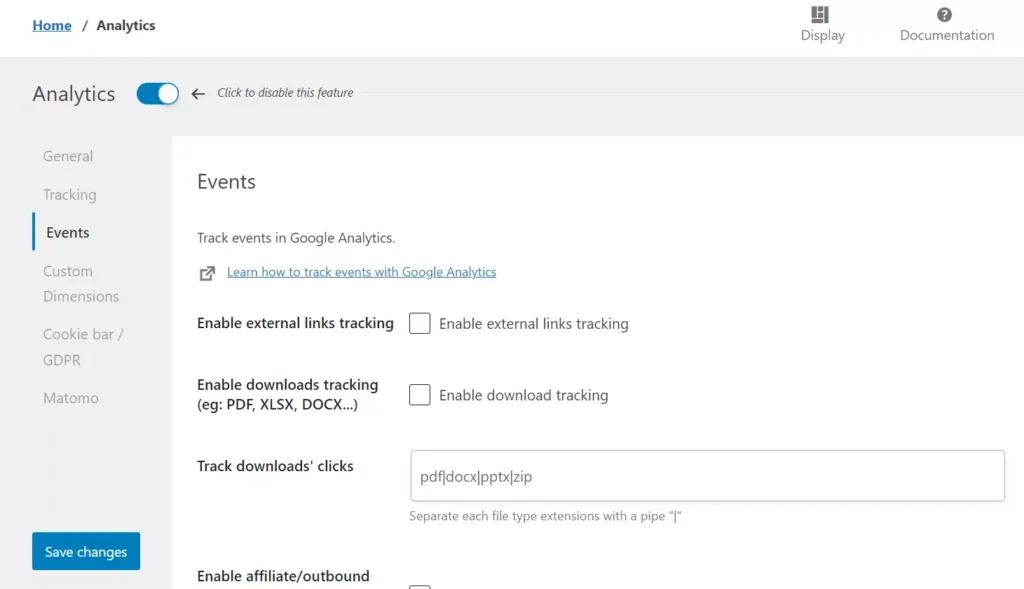
Rank Math can show the Google Analytics data in the WP dashboard once you link your GA account with it. SP can not only insert GA code in the pages of the site automatically, but it also allows you to track events, clicks on tags/categories, etc. When you’re logged in to the website, and you don’t use an ad blocker, GA would track your visits too. SEOPress comes with an option to prevent GA from tracking certain logged-in users of the website.
To track the clicks on external URLs or downloads, you must modify the Google Analytics tracking code. If you use SP, you can enable tracking of clicks on downloadable files and outbound links from the plugin’s Settings page. RM doesn’t support this feature. Users can configure SP to track all types of downloads. RM has a textbox to enter the file extensions it should track. It also enables you to track the clicks on affiliate URLs. You must enter the affiliate link prefix on the settings page to enable this feature.
External links in new tab
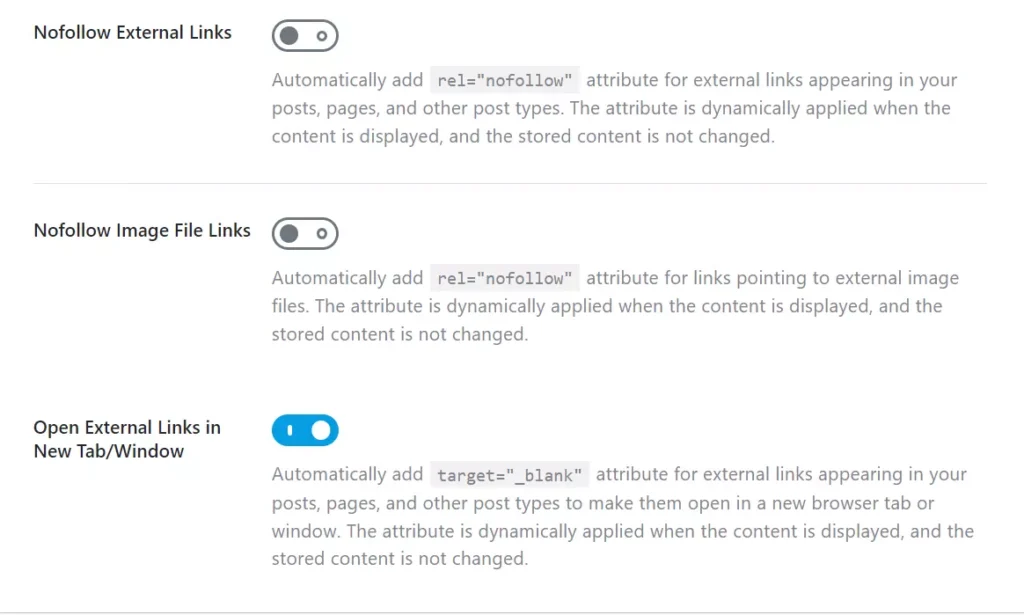
For some reason, users may want to nofollow all external links on their sites. RM can add a rel="nofollow" tag to all external URLs on your website. You can also configure it to open external links in a new tab. In 2019, Google introduced a new attribute for links called “sponsored”. The Rank Math plugin can automatically add the rel="sponsored" tag to affiliate links.
Cookie bar
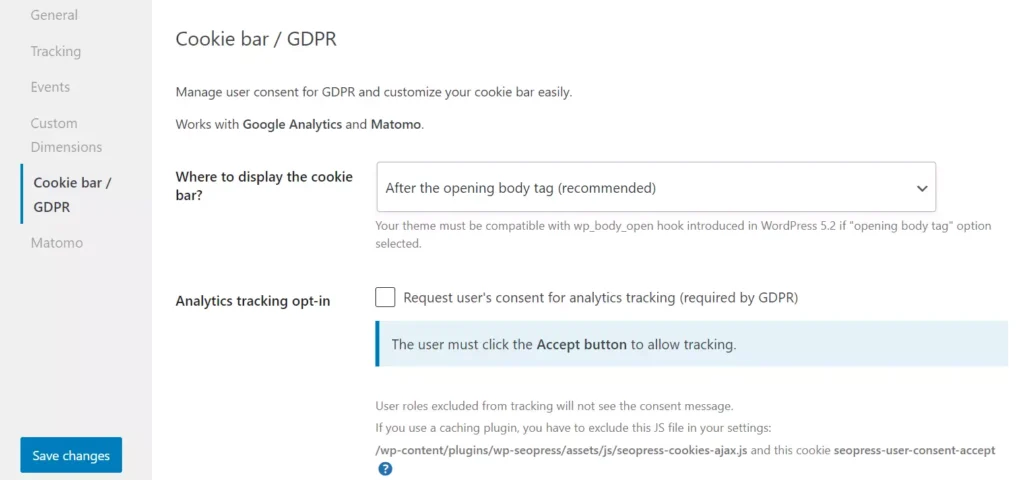
In some countries, it is mandatory to show a GDPR notice or cookie bar to website visitors. This bar has a message that the site may store cookies on the PC. SEOPress free version can add a cookie bar to the website. This bar can have a custom text message. The extension ships with a customizable cookie bar. You can activate this bar from its “Analytics” section. You can configure this WordPress search engine optimization plugin to add the cookie bar after the opening of the body tag, at the top, or on the website’s footer.
The extension allows you to set a custom label for the button that appears on the bar and set a custom cookie expiration date. You can change the bar’s color, button, etc. Rank Math doesn’t have a built-in option to activate the cookie bar, but it lets users make GA GDPR compliant by supporting cookieless tracking.
Schemas
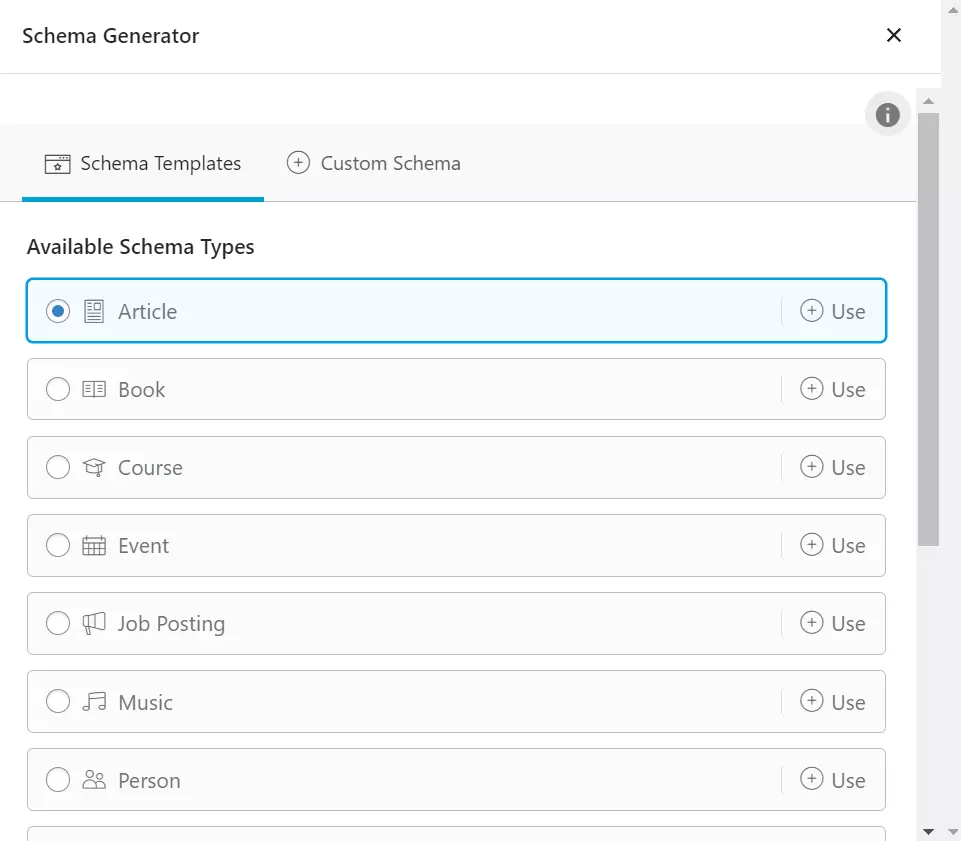
SEOPress free version doesn’t let users enable the schema module, but its PRO version allows you to activate it. Rank Math supports every schema that bloggers use. For example, you can add a product review schema to your blog with it without paying a dime.
RM has a better schema engine than SEOPress. In SEOPress, the schema generator module appears below the post editor. In RM, the option to add schema appears on the post editor sidebar. RM shows the types of schemas it supports in a popup box when you click the schema generator button on the sidebar. You must choose a schema from this list and fill out the form fields that are not prefilled. That’s it!
RM lets users create a custom schema from scratch. It can also import the schema from a page and add the same to your post or page. The free version of this plugin lets users insert a single schema in the page’s post. The Pro version enables you to add multiple schemas to a single post/page.
Pricing
SEOPress is cheaper than its counterpart. Its price is 39 dollars per year. The price of the Insights extension is 99 per site, and the bundle plan, which includes the SEO and Insights plugin, is priced at 118 dollars. Rank Math is 17 dollars costlier than its counterpart. You can purchase its Pro subscription plan for 59 dollars and the Business and Agency plan for 199 and 499 dollars. The Pro plan is for individual use. The other two plans are for businesses that want to power their client websites with RM.
Why is Rank Math a better option?
SEOPress free version doesn’t support schema, while RM does. This is a major difference between the two WP products. Many extensions that generate and insert schema of the user’s choice cost over 50 dollars/year. If the plugin is free, it will show tons of ads each time you create a schema with it. RM is offering a premium feature for free.
I had mentioned earlier that I used SEOPress. Why did I switch to Rank Math? SEOPress supports product schema, but it doesn’t let users who aren’t using WooCommerce add a rating to the product schema. As I publish reviews on my sites frequently, I had two options, either switch to another SEO extension that has a better schema engine or purchase a dedicated schema plugin. I decided to buy the Rank Math Pro subscription.

